A new front door can instantly transform your home's curb appeal, creating a welcoming entrance that makes a lasting impression on guests and passersby alike. But with so many front door styles available, how do you find the right door to complement your home's architecture and unique style?
In this guide, we’ll go over popular exterior door styles, highlighting their key features and best uses for Ontario homeowners. Let’s explore each and find the perfect fit for your home and budget.
Traditional Exterior Doors
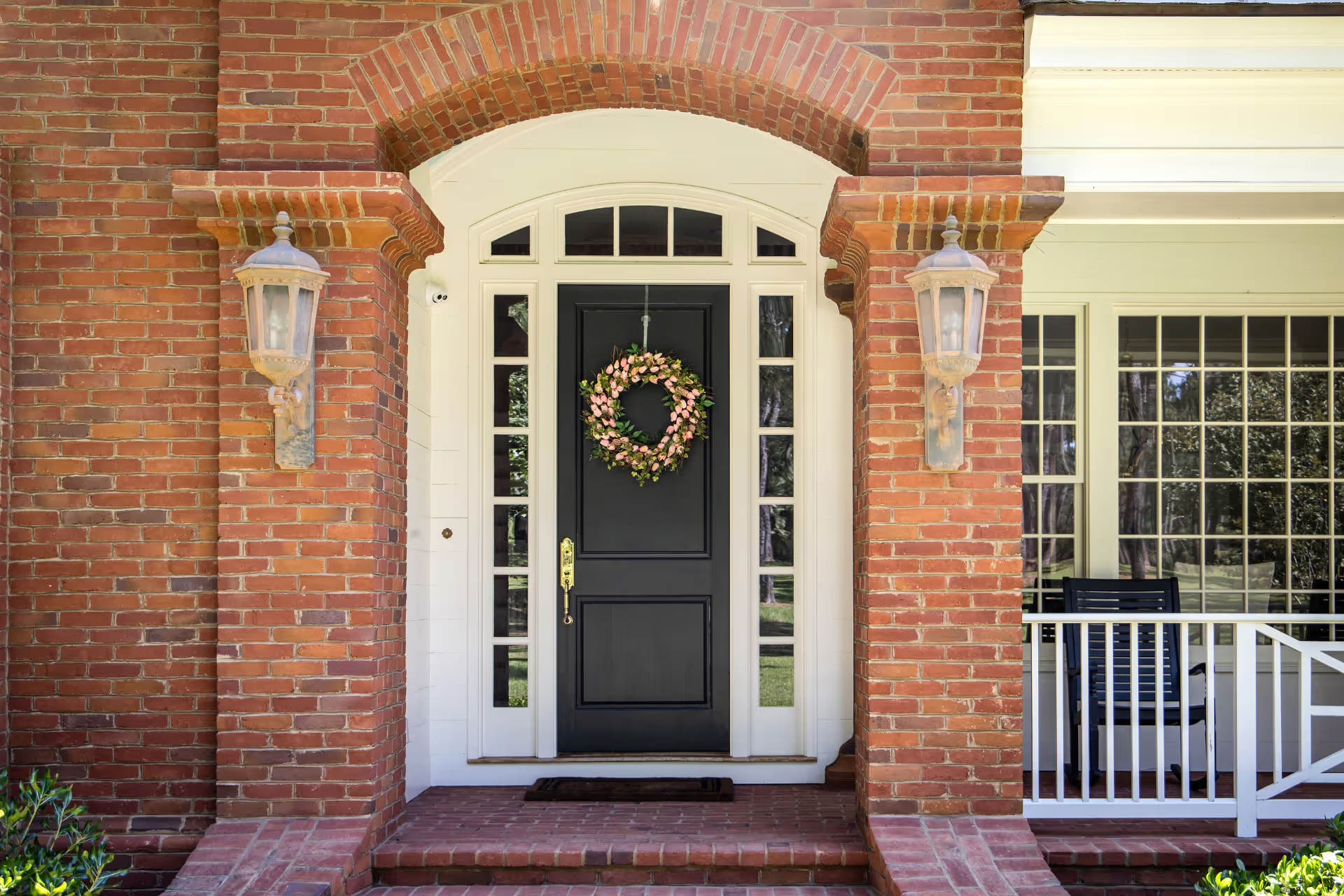
Image Source: Canva
Traditional entry door styles are the epitome of timeless elegance and classic charm. The traditional front door evokes a sense of history and tradition, often featuring raised panels, decorative glass inserts, and intricate detailing that adds a touch of sophistication to any home.
These types of front doors are typically crafted from wood, such as rich mahogany or sturdy oak. However, modern fibreglass options can beautifully mimic wood while offering enhanced durability and weather resistance. Classic door panel designs range from simple two-panel configurations to elaborate six-panel or even eight-panel layouts.
⭐Best For: Classic architectural styles, transitional homes
Contemporary Entry Doors
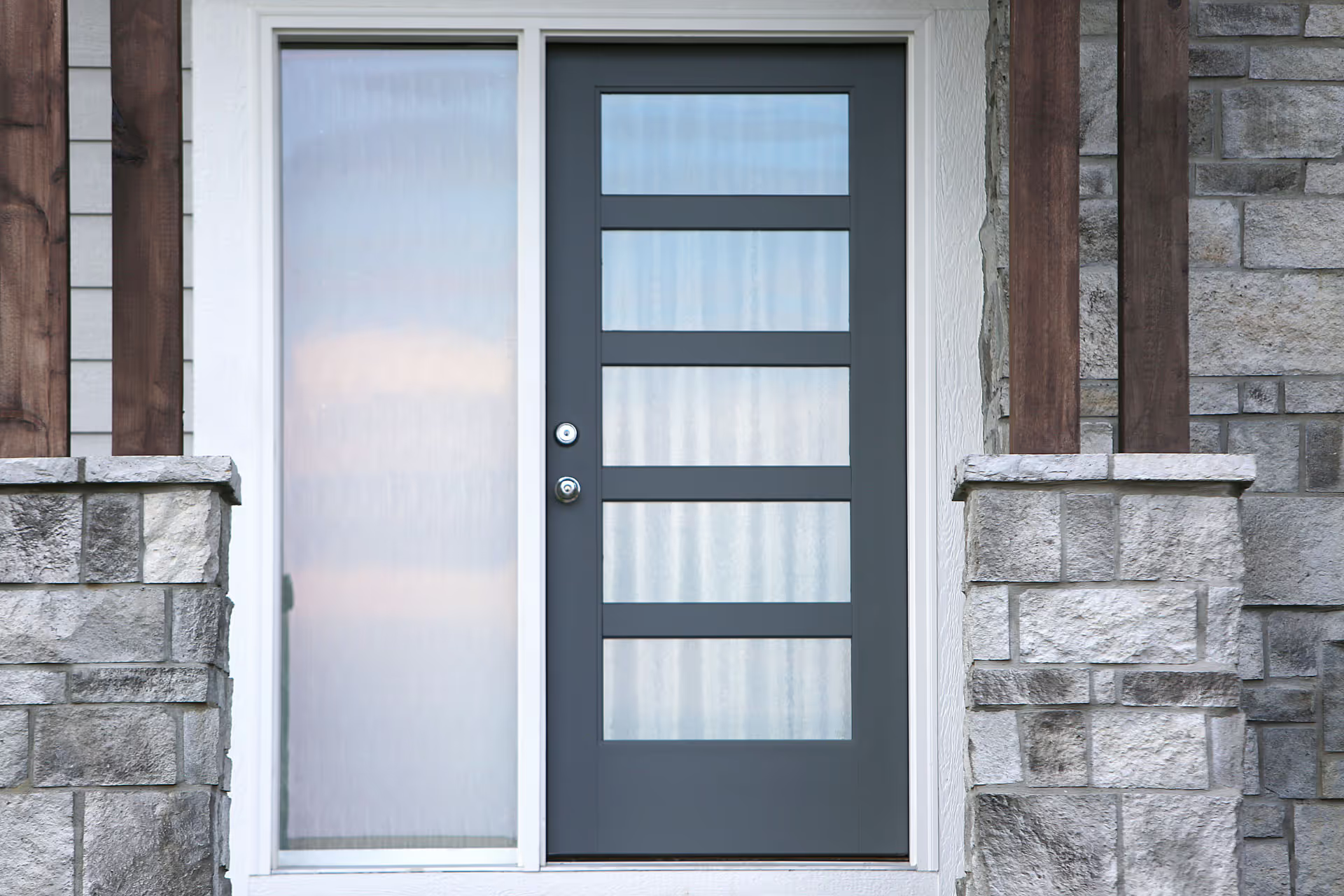
Image Source: Canva
Contemporary types of exterior doors are all about clean lines, minimalist aesthetics, and a sleek, modern look. They often feature bold geometric shapes, unique materials, and innovative design elements as key components.
These front door types often incorporate large glass panels to maximize natural light in the main entrance, metal accents for an industrial touch, or unique hardware with sleek finishes. Some modern front doors even feature innovative pivot hinges that allow the door to swing open in a unique way.
Contemporary entry door styles are perfect options for homes with a clean, modern feel. These modern front door styles make a statement and enhance your home’s exterior.
⭐Best For: Modern and contemporary homes, minimalist architecture
Rustic Entry Door
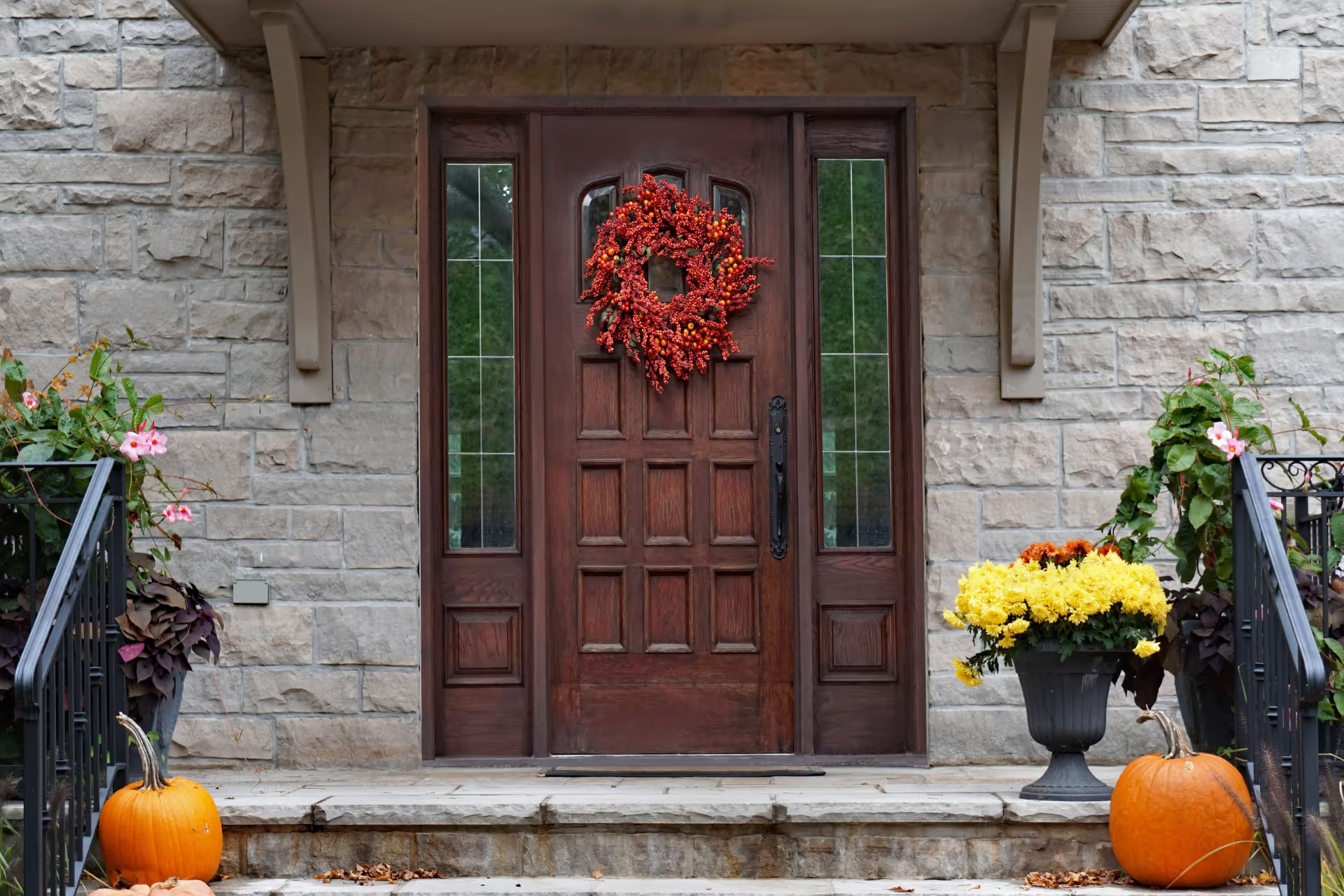
Image Source: Canva
Rustic front door styles highlight the beauty of natural materials and bring a relaxed, comfortable vibe to your home. A rustic front door is typically crafted from sturdy, robust materials like solid wood and intentionally distressed to give it a more rugged feel
Other common features of these exterior door styles include decorative elements, like iron accents, including handles, hinges, or decorative grills, adding to the old-world aesthetic. Glass inserts with textured or stained designs are also popular in rustic styles, allowing light to filter into the entryway while maintaining privacy.
⭐Best For: Farmhouse-style homes, cottages, cabins
Craftsman Doors
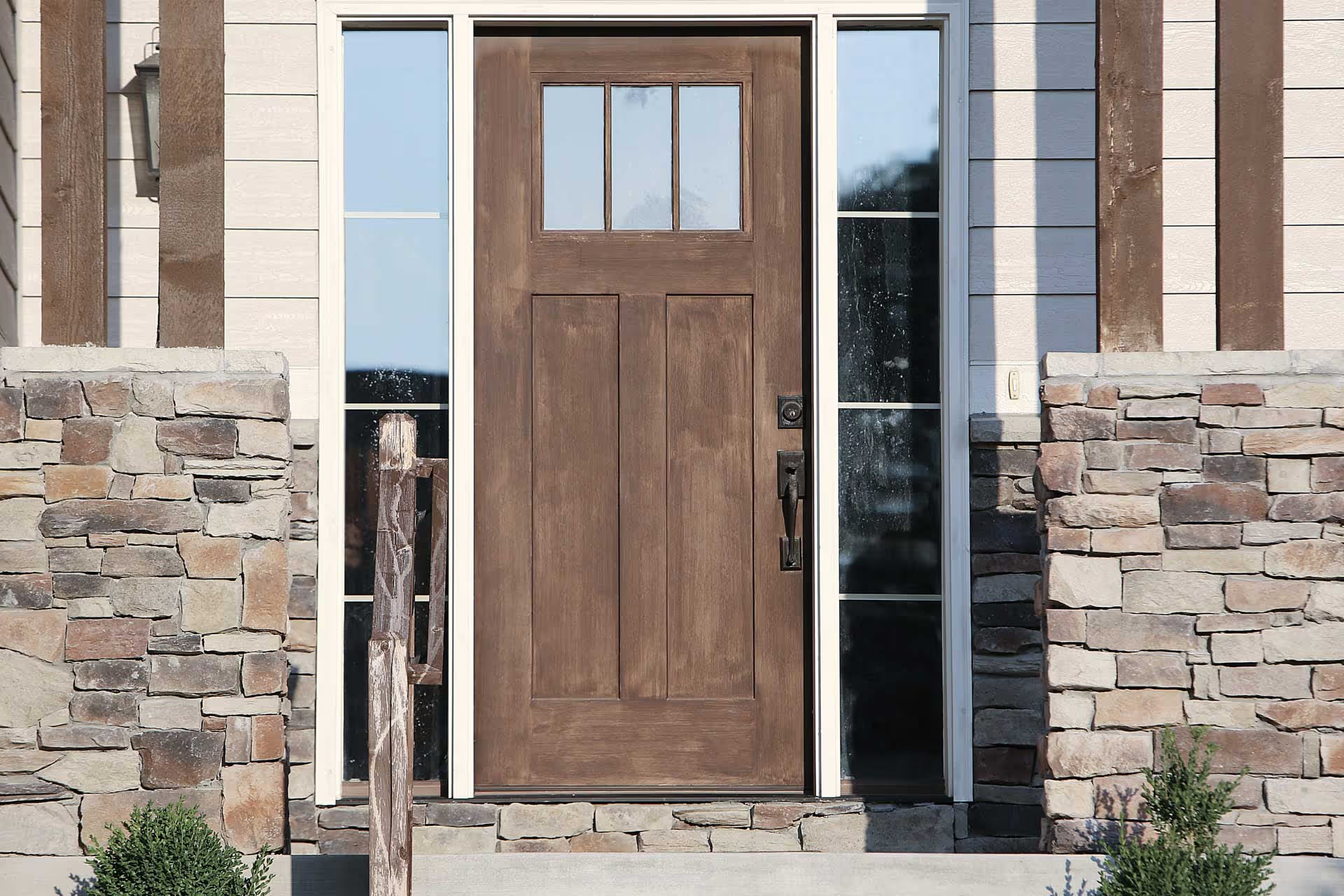
Image Source: Canva
Craftsman entry door styles have risen in popularity in recent years. They’re typically characterized by long, raised panels on the lower part and a rectangular glass window on the upper third of the door.
Craftsman front door styles are usually constructed from wood, such as oak, maple, or cherry, though fiberglass door options offer a similar aesthetic with added durability. These exterior doors add quality craftsmanship, with attention to detail in the finishing. The door hardware is typically understated, with simple handles and hinges.
⭐Best For: Craftsman-style homes, bungalows, cottages, and townhomes
Arched Doors
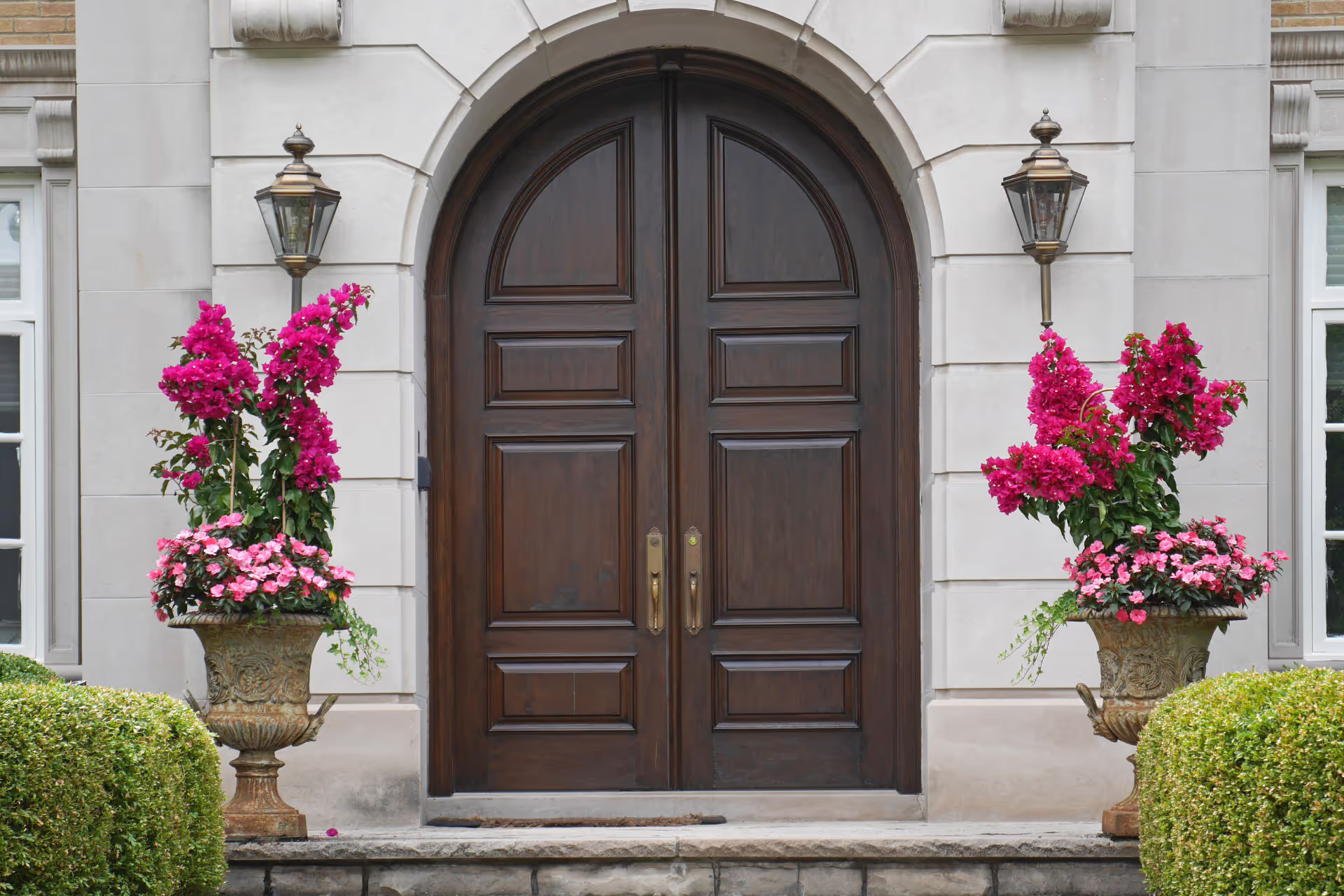
Image Source: Canva
Although many exterior door styles include arched exterior door options, their distinct curved design earns them a category of their own. If you’re looking for a door that gives your Toronto home a unique, eye-catching architectural feature, an arched exterior door is an excellent choice.
Arched front door styles are a statement of elegance and grandeur. Their dramatic presence creates a sense of sophistication and interest. An arched exterior door can be crafted from various materials, including wood, fibreglass, and even steel, each offering its own unique aesthetic and benefits.
These charming entry door styles are custom-ordered and designed to fit your home’s precise specifications. You can choose from three styles of arched entry doors, namely top rail true arch doors, flat arch doors, and top rail flat arch doors.
⭐Best For: Mediterranean-style homes, Spanish Colonial architecture, or any home seeking a dramatic and elegant entrance.
Shop Your Dream Front Door Styles at Clera Windows + Doors
Choosing the perfect entry doors from several front door styles can be overwhelming. Clera Windows + Doors is here to simplify the process and help you build the ideal entrance for your home's architecture and style.
As a family-run Canadian business with over 45 years of experience, we understand the needs and preferences of Ontario homeowners. We offer a diverse selection of high-quality doors, each crafted with precision to enhance your home's curb appeal and energy efficiency.
Contact Clera Windows + Doors today for a free estimate.








